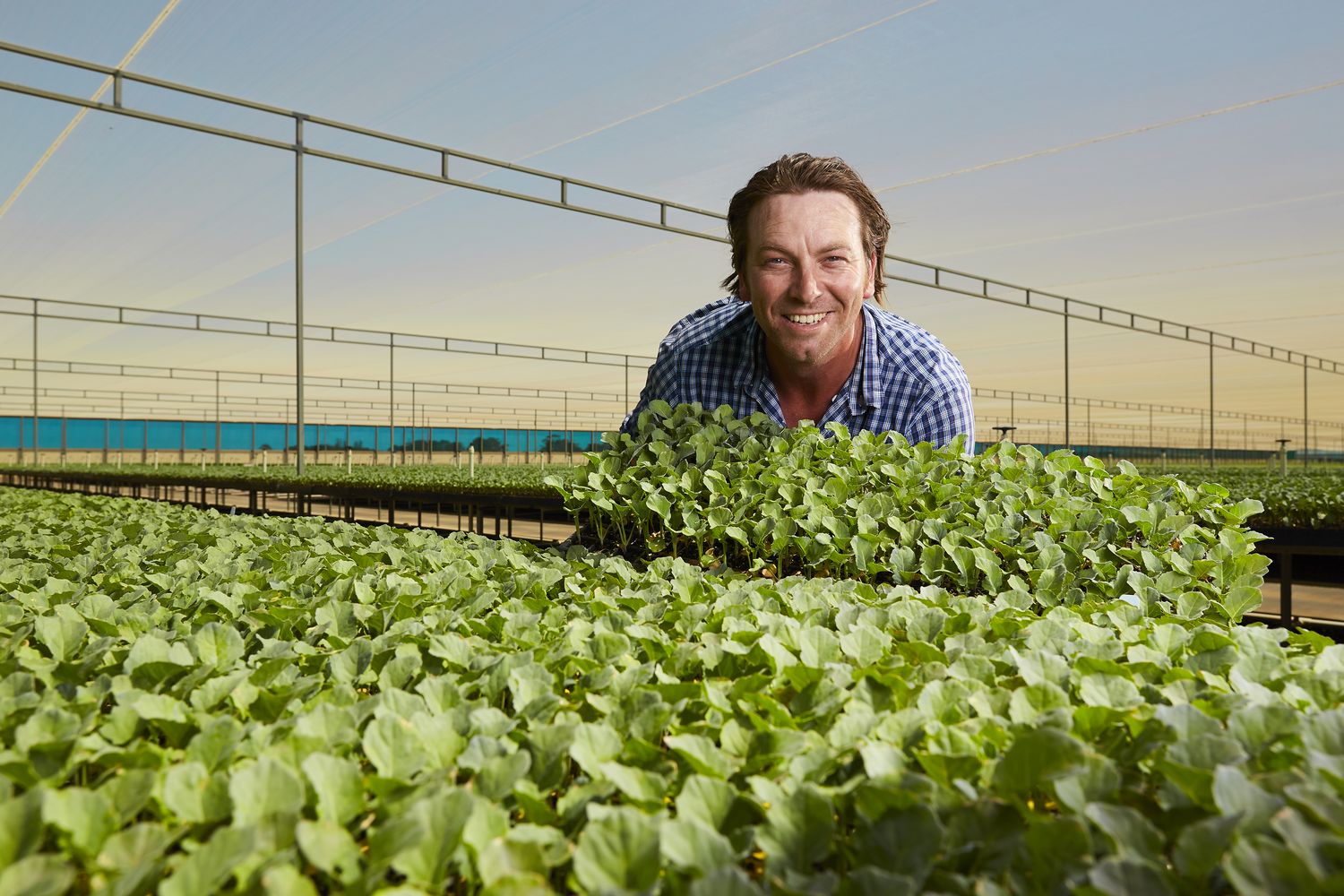
How to check your veggie patch for TPP (video)
28 February 2017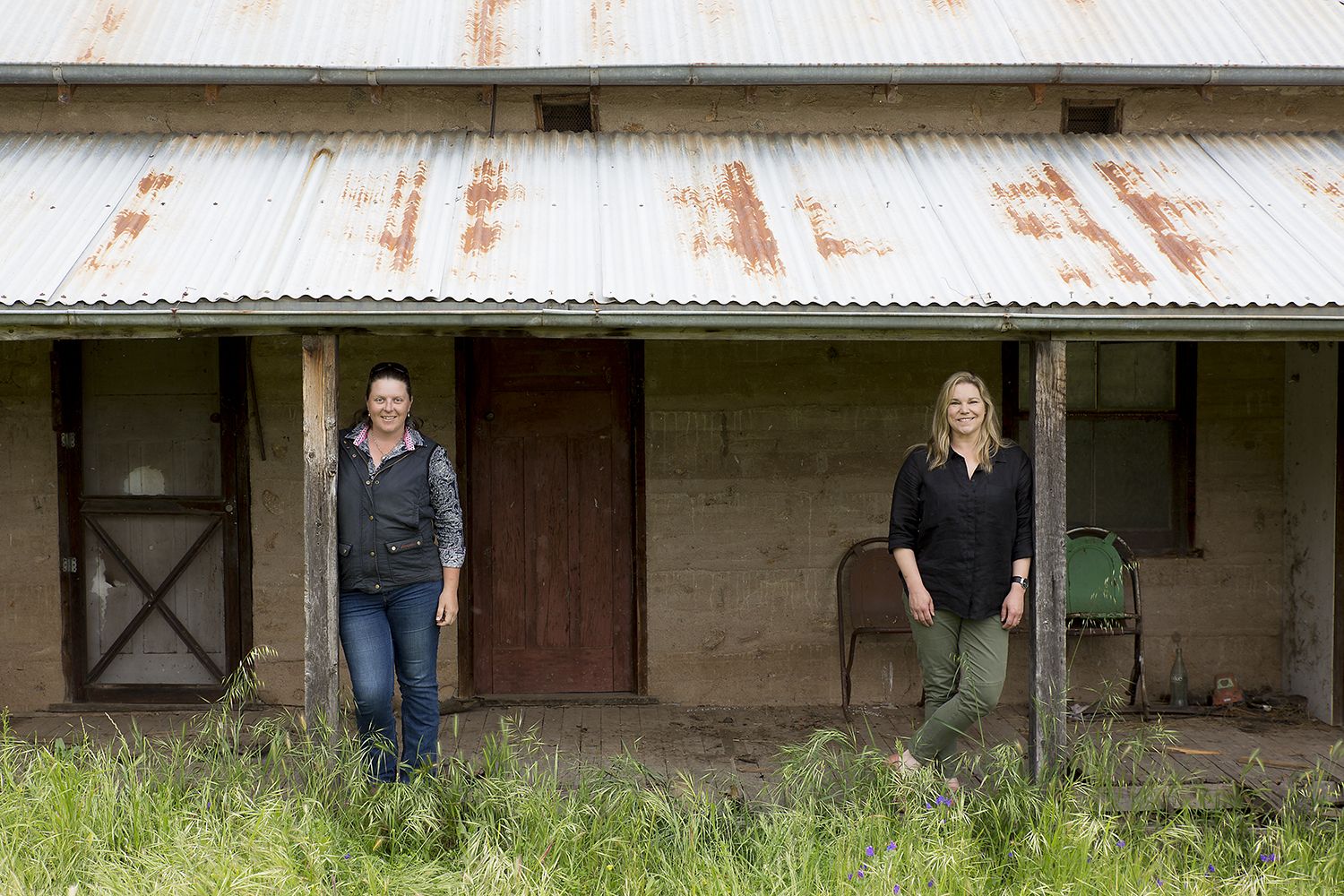
Kim Storey and Cassie Gates: Challenging the stereotype – what does a farmer look like?
15 March 2017James Dickson’s passion for plants started in the backyard garden as a boy. He's spent the past 15 years in nurseries and showed no signs of slowing down in his role as Head Grower at Gro-Link Nursery, a family-run business at Werribee South in Victoria, when we spoke to him in March 2017.
Fast facts
Name: James Dickson
Location: Werribee South, VIC
Works: Gro-Link Nursery (Fragapane Farms)
Grows: Broccoli, cauliflower, cos lettuce, iceberg lettuce
“Growing is a combination of art and science – the art is when to use the science.”
So says James Dickson, Head Grower at Gro-Link Nursery and a private consultancy business owner.
James should know: After 15 years of working in various nurseries around Australia, he has created and designed a process of growing called a Holistic Approach to Standardised Management.
“What that means is that all inputs into this facility are factored in and understood,” James explains.
“It’s the quality of the media in which we grow the seedlings, the quality of the water, the nutrients and how all these inputs interact with each other to then create a standardised growing approach, purely for the farmers.”
James’ passion for growing seedlings and his thirst to improve and simplify the growing process has contributed to business and personal success.
His workplace, Gro-Link Nursery, is owned by the Fragapane family. Located at Werribee South, the second-generation business was established 25 years ago and plays an important role in the vegetable industry. Gro-Link was one of the first production nurseries in Australia, and it supplies more than 100 million seedlings per annum to growers primarily located in Victoria.
James’ role as Head Grower involves all aspects of growing, including the full customisation of a nutrient program.
“There are so many different types of varieties and groupings of varieties that it takes a custom growing approach,” he says.
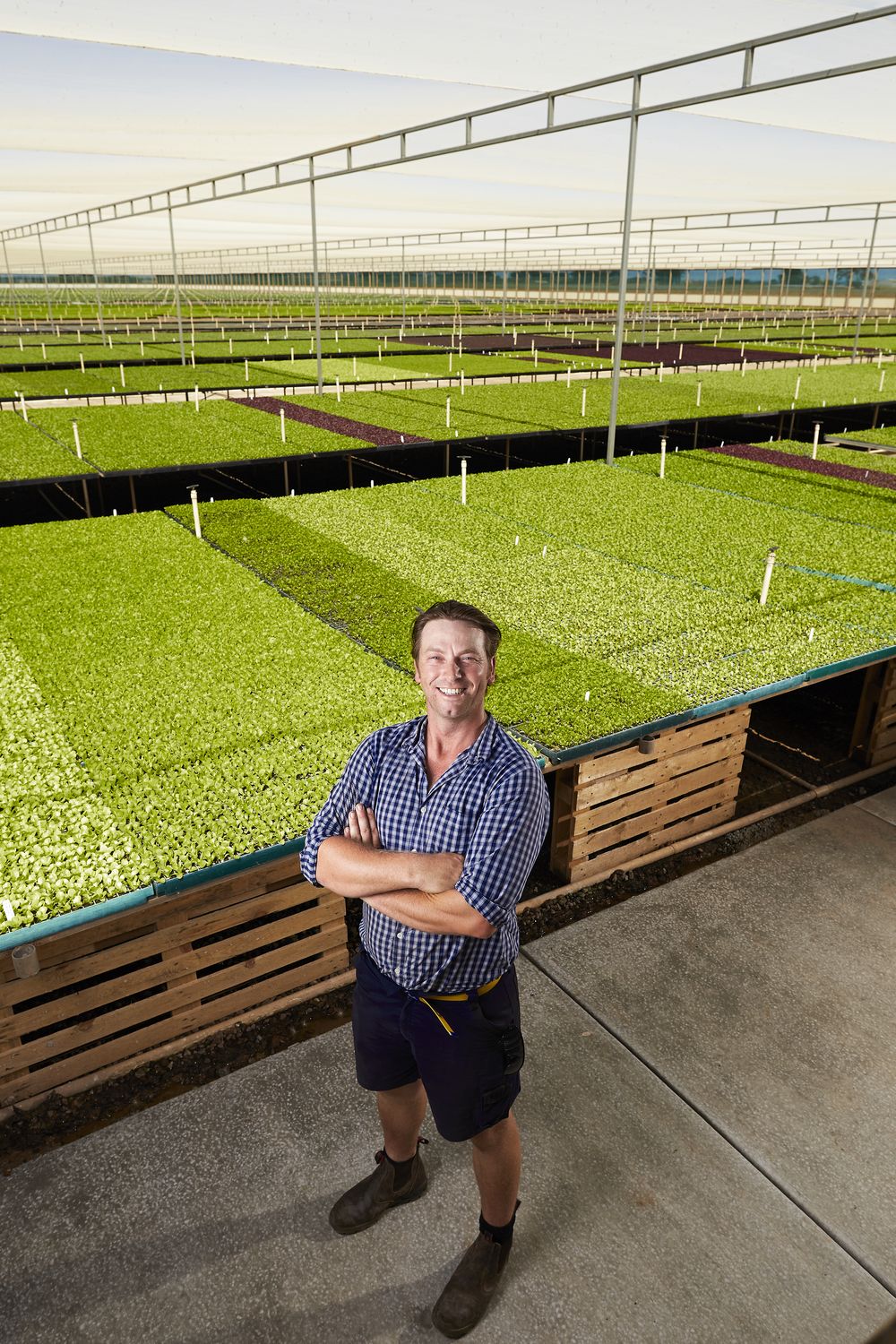
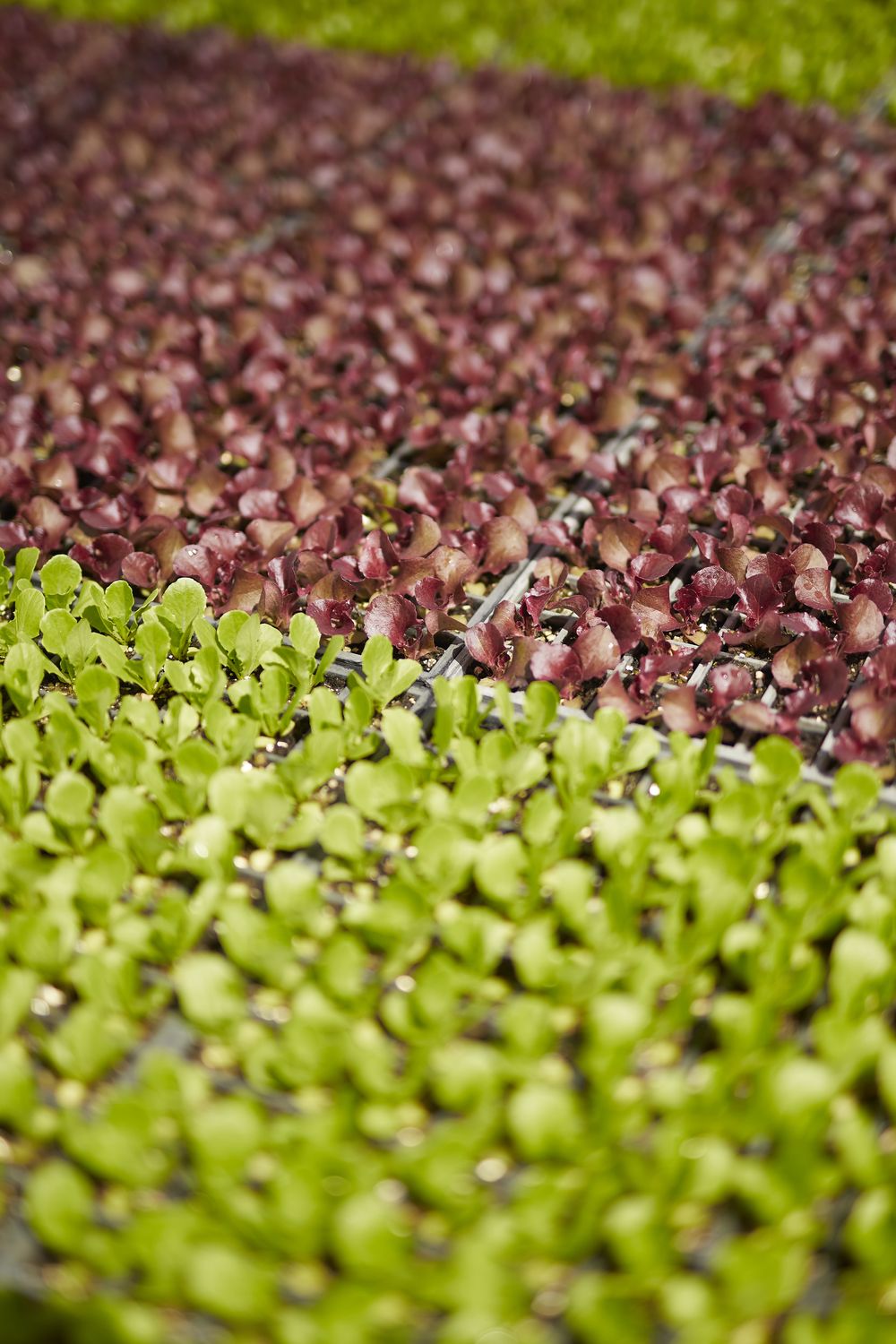
A thriving business
James has worked at Gro-Link Nursery for almost four years, and in that time the business has grown 10-15 per cent each year.
“It’s all credit to the Fragapane family. They’ve created a fantastic nursery that just needed somebody with my passion and understanding of growing to help lift it up to the next level. I work so well with Managing Director David Fragapane – I always say that I don’t work for the Fragapanes; I work with them and that’s how I still feel after four years,” James says.
“I have a fully autonomous role and we work closely with our stakeholders and every seed company in Australia. There are just so many little things that we do and I suppose that’s my biggest input – my experience with nutrient management and being able to grow a consistent, healthy seedling. As a result of that, our business is growing rapidly.”
"A healthy, forward-moving seedling is the beginning of all successful farms. It’s so important that the nurseries are producing and delivering healthy seedlings because it impacts the farmers so much if they don’t have that consistency. There’s something really pure and simple about what we do here."
Grower challenges
Despite a booming business, James says weather is his toughest test as a grower – particularly the conditions experienced in Victoria over the past 12 months.
“Whatever is happening within the climate, we’re feeling it at the ground level. It’s much harder than it ever has been to grow a consistent crop, purely because of these massive fluctuations in temperature, which also brings more disease pressure or extended life cycles of insects. I just find the last 12 months have been more challenging than ever,” James says.
In response, Gro-Link Nursery – under the watchful eye of James and the Fragapane family – has started to undergo major changes that will span over the next 1-2 years and make way for ongoing growth of the business.
“We’re going through a large-scale retro fitting of our current facility, which will give us a lot more control of our nutrients, our water quality and our sterilisation practices within the nursery. We’re moving from quite a manually operated system to digital dosing systems – all touch screen control systems,” James says.
“We’re also looking at building a large undercover facility, which will give us a lot more temperature control and also take away that huge element of rain events and hail.”
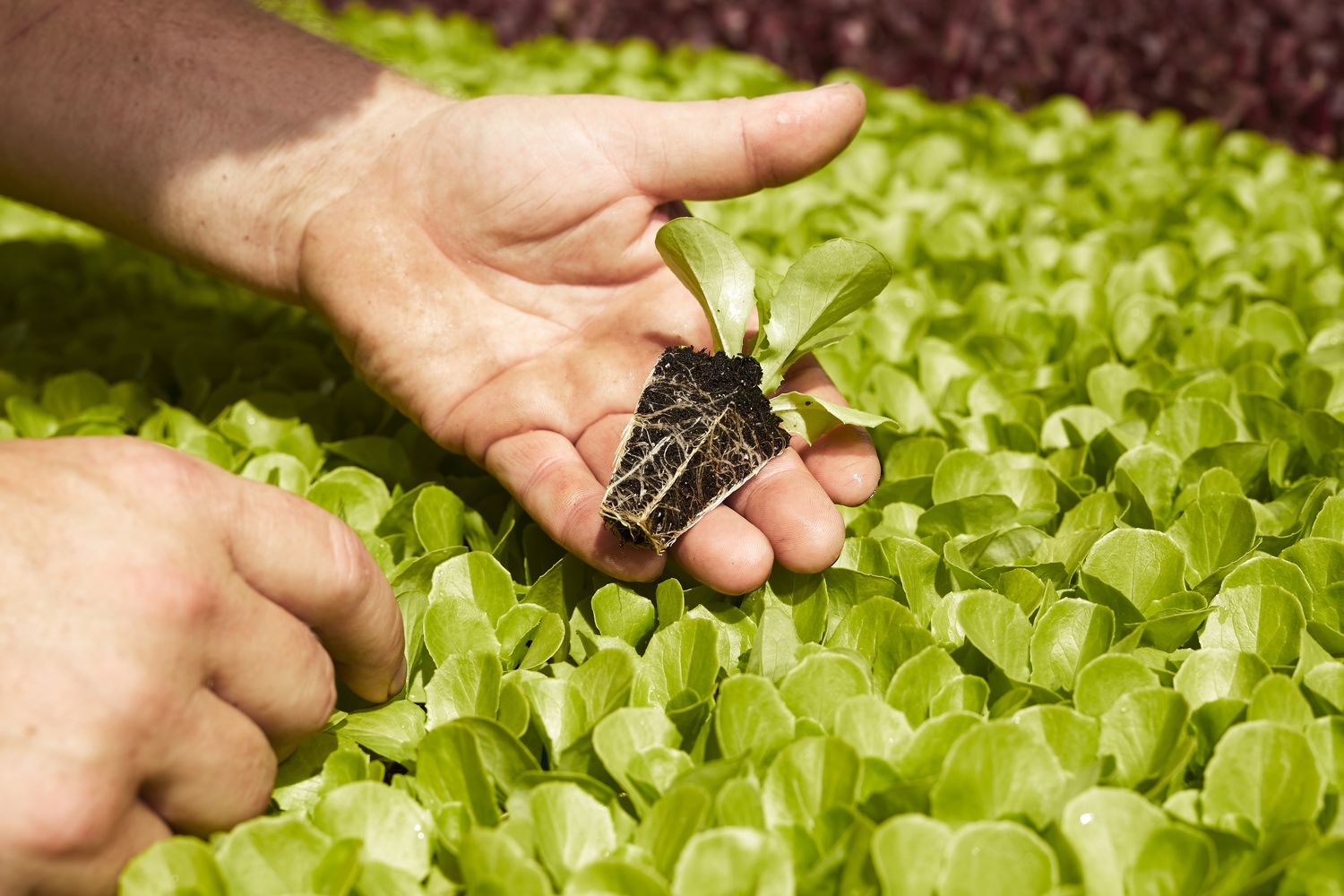
Important issues
There are many areas of research that are vital to the ongoing sustainability of the vegetable industry, and James outlined what he believes are most important.
“What I find is, there’s a gap between the research that’s happening and the average farmer having an understanding of how it benefits them,” James says.
“Continued research around crop protection is also needed. I’m a big believer in Integrated Pest Management – more work needs to be done around using beneficial insects, the natural health of the soil using bacteria and focusing on back when they were farming 100 years ago. Over the generations, farmers have become so used to having high crop protection inputs and I feel that’s not necessary in this day and age.
“With the farmers that are going back to focusing on the health of their soil, I’m seeing a greater result in their farm with less inputs – whether it be less synthetic fertilising inputs or less crop protection inputs.
“I’d love to see more research done around more sustainable field-growing practices, in the right balance. No-one wants to lose 20 per cent of their crop, but they’d be happy to lose five per cent of their crop if it meant that they weren’t spraying as much and the health of their soil was coming back to how it was 50 years ago.”
Sustainability goals
James’ broad knowledge and his standardised management approach to growing was recently recognised at the 2016 Syngenta Growth Awards, where he was named a regional winner in the sustainability sector.
The forward-thinking grower described the experience as humbling.
“I was just so proud to be considered part of that league of industry people,” James says.
“What Syngenta was trying to understand is: How do we better educate the average consumer about why we have to do what we do with vegetable crops? Everybody is able to get information at the touch of their phone, and there is a whole new movement of pest-free and chemical-free produce, but in reality crop protection products play a very important role in the sustainability of being able to provide enough food for the population.
“A healthy, forward-moving seedling is the beginning of all successful farms. It’s so important that the nurseries are producing and delivering healthy seedlings because it impacts the farmers so much if they don’t have that consistency. There’s something really pure and simple about what we do here.”
This grower profile first appeared in the leading magazine for the Australian vegetable industry, Vegetables Australia. If you’d like to subscribe to receive a new edition of Vegetables Australia in your mailbox every two months, use our online subscription form!

